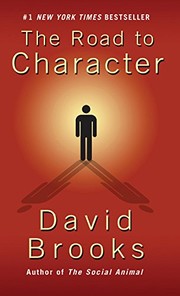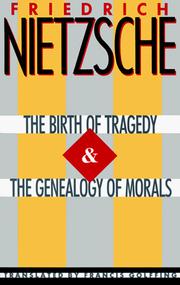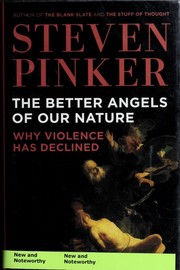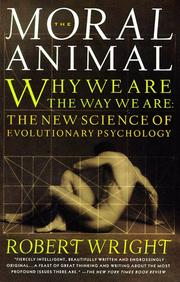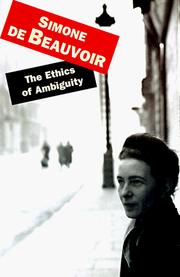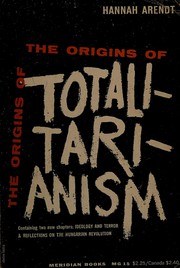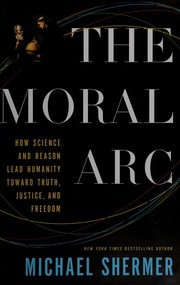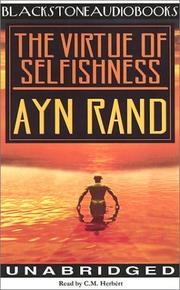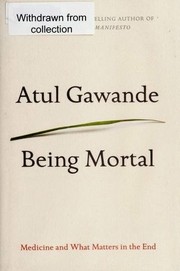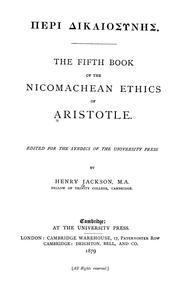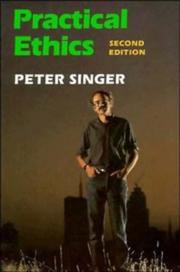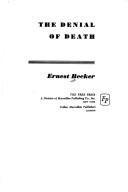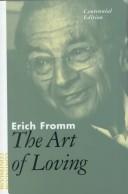If you’re on the hunt for thought-provoking reads that delve into the complex realm of human ethics and values, look no further. In the world of literature, there are numerous books on morality that offer profound insights and perspectives on the human condition. From philosophical musings to fictional explorations of moral dilemmas, these 20 best books about morality are sure to challenge and inspire you.
Contents
- 1 20 Best Books About Morality
- 2 The Righteous Mind: Why Good People Are Divided by Politics and Religion
- 3 The Road to Character
- 4 The Moral Landscape: How Science Can Determine Human Values
- 5 The Genealogy of Morals
- 6 The Better Angels of Our Nature: Why Violence Has Declined
- 7 The Moral Animal: Why We Are the Way We Are: The New Science of Evolutionary Psychology
- 8 The Ethics of Ambiguity
- 9 The Origins of Totalitarianism
- 10 The Moral Arc: How Science and Reason Lead Humanity toward Truth, Justice, and Freedom
- 11 The Virtue of Selfishness: A New Concept of Egoism
- 12 The 7 Habits of Highly Effective People
- 13 Moral Tribes: Emotion, Reason, and the Gap Between Us and Them
- 14 Being Mortal: Medicine and What Matters in the End
- 15 Ethics: Essential Readings in Moral Theory
- 16 The Nicomachean Ethics
- 17 Justice: What’s the Right Thing to Do?
- 18 Practical Ethics
- 19 The Denial of Death
- 20 The Book of Five Rings
- 21 The Art of Loving
- 22 Conclusion
- 23
- 24 Discover the Best Ancient India Books in the 2024 Updated Edition
- 25 Reading List of Writing Short Stories Books – 2024 Update
- 26 Reading List of Multiple Dimensions Books – 2024 Update
20 Best Books About Morality
The Righteous Mind: Why Good People Are Divided by Politics and Religion
by Jonathan Haidt
The Righteous Mind: Why Good People Are Divided by Politics and Religion by Jonathan Haidt is a thought-provoking book on morality that delves into the psychological roots of our political and religious divisions. Haidt explores the complex and often contradictory nature of human morality, arguing that it is shaped by a combination of intuition, emotion, and reason. By examining the moral foundations that underpin our beliefs, Haidt sheds light on why people with different ideologies often seem unable to understand one another. Drawing on a wide range of research, from anthropology to neuroscience, he offers insights into how we can bridge these divides and create a more compassionate and understanding society. The Righteous Mind is a compelling and timely exploration of the forces that shape our moral convictions, and a must-read for anyone seeking to understand the complexities of human nature.
The Road to Character
by David Brooks
The Road to Character by David Brooks is a thought-provoking book on morality that explores the concept of building inner character in a world that often prioritizes external success. Through a combination of historical anecdotes, philosophical insights, and personal reflections, Brooks challenges readers to consider the importance of values such as humility, kindness, and integrity. The book delves into the lives of various historical figures and their journeys towards moral depth, offering valuable lessons and inspiration for modern readers. With its engaging storytelling and profound wisdom, The Road to Character is a compelling read for anyone seeking to cultivate a deeper sense of purpose and meaning in their lives. This morality book is a must-read for those interested in personal development and ethical introspection.
The Moral Landscape: How Science Can Determine Human Values
by Sam Harris
The Moral Landscape: How Science Can Determine Human Values by Sam Harris is a thought-provoking book on morality that challenges traditional notions of right and wrong. Harris argues that science can provide objective answers to moral questions and guide us in determining human values. Drawing on neuroscience, psychology, and philosophy, he explores the intersection of science and morality, proposing a framework for understanding and improving ethical decision-making. This insightful and controversial book about morality encourages readers to re-examine their beliefs and consider the implications of a scientific approach to morality. Harris’s compelling arguments and engaging writing style make The Moral Landscape a must-read for anyone interested in the intersection of science and ethics.
The Genealogy of Morals
by Friedrich Nietzsche
The Genealogy of Morals is a profound exploration of the origins and development of human values. Friedrich Nietzsche, a provocative and influential philosopher, delves into the historical and psychological roots of morality. In this thought-provoking book on morality, Nietzsche challenges conventional notions of good and evil, and questions the foundations of our moral beliefs. He argues that traditional morality has its origins in power dynamics and asserts that our moral values are shaped by a complex interplay of historical, cultural, and psychological forces. By examining the evolution of morality, Nietzsche invites readers to critically reflect on their own ethical convictions and consider the implications of his groundbreaking ideas. The Genealogy of Morals is a timeless morality book that continues to spark intellectual debate and inspire readers to reevaluate their understanding of right and wrong.
The Better Angels of Our Nature: Why Violence Has Declined
by Steven Pinker
The Better Angels of Our Nature: Why Violence Has Declined by Steven Pinker is a groundbreaking book on morality that explores the decline of violence throughout human history. Pinker argues that despite the constant stream of news about war, crime, and terrorism, violence has actually decreased over time. He delves into the psychological, sociological, and cultural factors that have contributed to this decline, offering a thought-provoking analysis of human behavior and our capacity for empathy and cooperation. By examining historical trends and data, Pinker presents a compelling case for the overall improvement of human morality and the potential for a more peaceful future. This morality book challenges conventional wisdom and offers a hopeful perspective on the human condition, making it a must-read for anyone interested in the complex nature of human morality.
The Moral Animal: Why We Are the Way We Are: The New Science of Evolutionary Psychology
by Robert Wright
The Moral Animal: Why We Are the Way We Are: The New Science of Evolutionary Psychology by Robert Wright is a captivating exploration of human behavior through the lens of evolutionary psychology. This thought-provoking book delves into the complexities of human nature, examining the evolutionary roots of our moral instincts and social behaviors. Wright draws on a wealth of scientific research to shed light on the underlying forces that drive our actions, from altruism to aggression. By delving into the evolutionary origins of our moral instincts, the book offers a fresh perspective on the complexities of human behavior. With its engaging writing style and compelling insights, The Moral Animal is a must-read for anyone interested in understanding the intricate workings of the human mind and the forces that shape our moral decision-making.
The Ethics of Ambiguity
by Simone de Beauvoir
The Ethics of Ambiguity by Simone de Beauvoir is a thought-provoking book on morality that delves into the complexities of human existence. Beauvoir explores the concept of freedom and the moral responsibilities that come with it, emphasizing the ambiguity and uncertainty that defines the human experience. Through her philosophical analysis, she challenges traditional moral frameworks and encourages readers to embrace their individuality and make ethical choices in a world filled with ambiguity. This influential book about morality offers a compelling perspective on the human condition and the ethical dilemmas we face. Beauvoir’s insightful reflections on freedom, choice, and responsibility make The Ethics of Ambiguity a must-read for anyone interested in exploring the intricacies of moral philosophy.
The Origins of Totalitarianism
by Hannah Arendt
The Origins of Totalitarianism by Hannah Arendt is a thought-provoking exploration of the rise of totalitarian movements in the 20th century. This influential book delves into the historical, political, and social factors that led to the emergence of such regimes, offering profound insights into the nature of power, oppression, and human behavior. Arendt’s work is not just a historical analysis, but a profound morality book that raises important questions about the role of individuals and society in confronting the threat of totalitarianism. With its powerful and compelling narrative, The Origins of Totalitarianism is a must-read for anyone interested in understanding the complexities of political power and the book about morality in the modern world.
The Moral Arc: How Science and Reason Lead Humanity toward Truth, Justice, and Freedom
by Michael Shermer
The Moral Arc: How Science and Reason Lead Humanity toward Truth, Justice, and Freedom by Michael Shermer is a compelling book about morality. Shermer argues that over time, humanity has made moral progress through the application of science, reason, and critical thinking. He explores the historical and scientific evidence for the advancement of moral principles, from the abolition of slavery to the expansion of civil rights. Shermer also examines the role of religion, politics, and culture in shaping moral values, and how these can be influenced by scientific and rational thinking. Through engaging storytelling and thought-provoking analysis, Shermer presents a hopeful vision for the future, where truth, justice, and freedom continue to be advanced through the application of science and reason. The Moral Arc is a must-read for anyone interested in understanding the evolution of human morality and the potential for a more just and compassionate world.
The Virtue of Selfishness: A New Concept of Egoism
by Ayn Rand
The Virtue of Selfishness: A New Concept of Egoism by Ayn Rand is a thought-provoking book on morality that challenges traditional altruistic beliefs. Rand presents a compelling argument for rational self-interest, asserting that it is the foundation for a moral and fulfilling life. She advocates for the importance of individualism and the pursuit of one’s own happiness, rather than sacrificing oneself for the sake of others. Through a series of essays, Rand delves into the ethical principles of egoism and the value of selfishness, redefining these concepts in a way that challenges societal norms. The book encourages readers to reconsider their understanding of morality and to embrace the idea that self-interest is not only virtuous, but essential for personal growth and success.
The 7 Habits of Highly Effective People
by Stephen R. Covey
The 7 Habits of Highly Effective People by Stephen R. Covey is a transformative book on morality that has inspired millions to achieve personal and professional success. Covey presents a holistic approach to self-improvement, focusing on principles of fairness, integrity, and ethical behavior. The book outlines seven habits that are essential for personal growth and effectiveness, such as being proactive, prioritizing tasks, and seeking to understand others before being understood. Covey emphasizes the importance of aligning one’s actions with universal principles, nurturing relationships, and constantly striving for self-improvement. Through insightful anecdotes and practical advice, Covey encourages readers to adopt a paradigm shift and take responsibility for their own happiness and success. The 7 Habits of Highly Effective People is a timeless classic that offers valuable lessons for anyone seeking to lead a more fulfilling and purposeful life.
Moral Tribes: Emotion, Reason, and the Gap Between Us and Them
by Joshua Greene
Moral Tribes: Emotion, Reason, and the Gap Between Us and Them by Joshua Greene is a thought-provoking exploration of the complexities of human morality. This fascinating book delves into the intersection of emotion and reason, shedding light on the inherent tensions and conflicts that arise when different moral perspectives collide. Greene’s insightful analysis offers a fresh perspective on how we can navigate the moral landscape, bridging the gap between individuals and groups with differing beliefs and values. Through engaging storytelling and compelling research, the author challenges readers to reconsider their own moral intuitions and encourages a deeper understanding of the moral dilemmas we face in our increasingly interconnected world. Whether you’re a psychology enthusiast, a philosophy buff, or simply curious about the intricacies of human morality, this book is a must-read for anyone seeking a deeper understanding of the complex forces that shape our moral decisions.
Being Mortal: Medicine and What Matters in the End
by Atul Gawande
Being Mortal: Medicine and What Matters in the End by Atul Gawande is a thought-provoking exploration of the intersection between medicine and the human experience of aging and mortality. In this poignant and insightful book about morality, Gawande delves into the challenges and complexities of end-of-life care, discussing the ways in which modern medicine often fails to address the emotional and spiritual needs of patients facing terminal illness. Through compelling anecdotes and careful analysis, Gawande prompts readers to consider what truly matters in life and how healthcare systems can better serve those approaching the end of their lives. With empathy and wisdom, Being Mortal offers a profound reflection on the human condition and the importance of dignity and autonomy in the face of mortality.
Ethics: Essential Readings in Moral Theory
by George Sher
George Sher’s Ethics: Essential Readings in Moral Theory is a comprehensive and thought-provoking collection of essays that delves deep into the complex and compelling world of ethics. This book on morality presents a wide range of perspectives and theories, providing readers with a well-rounded understanding of the subject. Sher skillfully navigates through the timeless and contemporary debates on ethical principles, offering a valuable resource for anyone interested in exploring the intricate nuances of moral theory. Whether you are a seasoned philosopher or a curious novice, this morality book promises to challenge your beliefs, provoke critical thinking, and inspire meaningful discussions about the fundamental questions of right and wrong.
The Nicomachean Ethics
by Aristotle
The Nicomachean Ethics is a classic book on morality and virtue by the ancient Greek philosopher, Aristotle. In this timeless work, Aristotle explores the concept of eudaimonia, or human flourishing, and the role that virtue plays in achieving it. He delves into the different types of virtues, such as intellectual and moral virtues, and discusses the importance of finding the right balance, or ‘golden mean’, in one’s actions and emotions. Through a series of thought-provoking discussions and examples, Aristotle offers timeless wisdom on leading a virtuous and fulfilling life. Whether you’re a philosophy enthusiast or simply interested in delving into a book about morality, The Nicomachean Ethics is a must-read for anyone seeking a deeper understanding of human nature and ethics.
Justice: What’s the Right Thing to Do?
by Michael J. Sandel
Justice: What’s the Right Thing to Do? by Michael J. Sandel is a captivating exploration of ethical dilemmas and the concept of justice. This thought-provoking book delves into the complexities of moral and ethical decision-making, prompting readers to ponder their own beliefs and values. With compelling examples and real-life scenarios, Sandel challenges readers to consider the fundamental question of what is truly right and just in various situations. Whether you’re a philosophy enthusiast or simply intrigued by ethical debates, this morality book is sure to stimulate your mind and spark meaningful discussions about the nature of justice and morality.
Practical Ethics
by Peter Singer
Practical Ethics by Peter Singer is a thought-provoking book on morality that challenges readers to consider the ethical implications of their actions. Singer delves into various moral issues, including euthanasia, animal rights, and global poverty, offering a rational and systematic approach to ethical decision-making. Through engaging and persuasive arguments, Singer encourages readers to critically examine their beliefs and values, and to consider the consequences of their choices on a global scale. This morality book presents complex ethical dilemmas in a clear and accessible manner, making it an essential read for anyone interested in exploring the intricacies of moral philosophy.
The Denial of Death
by Ernest Becker
The Denial of Death by Ernest Becker is a thought-provoking book on mortality that delves into the human struggle with the awareness of our own mortality. Becker explores how this awareness shapes human behavior and the various defense mechanisms individuals use to cope with the fear of death. Drawing from psychology, philosophy, and anthropology, the book offers a profound analysis of the human condition and the pursuit of immortality through cultural and religious beliefs. Becker’s exploration of the impact of mortality on human society and the quest for significance makes this a compelling and insightful read for anyone interested in the complexities of the human experience. This morality book challenges readers to confront their own mortality and consider the implications for their lives.
The Book of Five Rings
by Miyamoto Musashi
The Book of Five Rings by Miyamoto Musashi is a classic Japanese text on strategy and martial arts. This timeless masterpiece is not just a book on combat techniques, but also a profound book about morality. Musashi’s insights into the nature of conflict, both physical and psychological, are valuable for anyone seeking to navigate the challenges of life. The book is divided into five sections, each representing a different element: earth, water, fire, wind, and void. Musashi’s teachings go beyond the battlefield, offering wisdom on how to approach all aspects of life with courage, clarity, and integrity. Whether you’re a martial artist, business leader, or simply a seeker of truth, The Book of Five Rings is a treasure trove of morality and wisdom that will inspire and enlighten you.
The Art of Loving
by Erich Fromm
The Art of Loving by Erich Fromm is a captivating exploration of the complexities of human relationships and the pursuit of genuine connection and fulfillment. This insightful book delves into the psychology of love, examining the various forms it takes and the obstacles that hinder its development. Fromm explores the concept of self-love as the foundation for loving others, and delves into the role of society and culture in shaping our understanding of love. Through his profound analysis, Fromm challenges readers to rethink their approach to love and offers valuable insights into the art of nurturing meaningful and healthy relationships. This book on morality is a timeless classic that continues to resonate with readers seeking a deeper understanding of love and its profound impact on our lives.
Conclusion
Exploring the complex and often challenging topic of Morality, these 20 books about morality offer readers a thought-provoking journey into the depths of human ethics and values. From classic philosophical treatises to modern-day novels, this diverse collection provides valuable insights and perspectives on the moral dilemmas that shape our lives. Whether you’re seeking guidance, inspiration, or simply a deeper understanding of the human condition, these books are sure to leave a lasting impression on your mind and heart.
Which Morality book is best?
The best book on Morality can vary with personal preference, but three widely recommended titles are:
- The Righteous Mind: Why Good People Are Divided by Politics and Religion by Jonathan Haidt,
- The Road to Character by David Brooks,
- The Moral Landscape: How Science Can Determine Human Values by Sam Harris.
Each offers valuable insights and could be a great starting point.
What are the best books to learn about Morality?
For those looking to learn about Morality, there is a wealth of literature that can provide a comprehensive understanding of the subject. Some of the most highly recommended books include:
- The Righteous Mind: Why Good People Are Divided by Politics and Religion by Jonathan Haidt,
- The Road to Character by David Brooks,
- The Moral Landscape: How Science Can Determine Human Values by Sam Harris,
- The Genealogy of Morals by Friedrich Nietzsche,
- The Better Angels of Our Nature: Why Violence Has Declined by Steven Pinker,
- The Moral Animal: Why We Are the Way We Are: The New Science of Evolutionary Psychology by Robert Wright,
- The Ethics of Ambiguity by Simone de Beauvoir,
- The Origins of Totalitarianism by Hannah Arendt,
- The Moral Arc: How Science and Reason Lead Humanity toward Truth, Justice, and Freedom by Michael Shermer,
- The Virtue of Selfishness: A New Concept of Egoism by Ayn Rand
These books offer a range of perspectives on Morality, covering various aspects and approaches to the subject.
What are the best books on Morality?
The best books on Morality include:
- The Righteous Mind: Why Good People Are Divided by Politics and Religion by Jonathan Haidt,
- The Road to Character by David Brooks,
- The 7 Habits of Highly Effective People by Stephen R. Covey,
- Moral Tribes: Emotion, Reason, and the Gap Between Us and Them by Joshua Greene,
- The Origins of Totalitarianism by Hannah Arendt,
- The Moral Animal: Why We Are the Way We Are: The New Science of Evolutionary Psychology by Robert Wright.
Each offers unique insights into the subject. While these books on the topic of Morality are highly regarded, it’s important to note that any list of ‘best’ books is subjective and reflects a range of opinions.
What are the best Morality books of all time?
Choosing the best Morality books of all time can vary depending on who you ask, but seven titles that are often celebrated include
- The Righteous Mind: Why Good People Are Divided by Politics and Religion by Jonathan Haidt,
- The Road to Character by David Brooks,
- The Better Angels of Our Nature: Why Violence Has Declined by Steven Pinker,
- The Origins of Totalitarianism by Hannah Arendt,
- The Virtue of Selfishness: A New Concept of Egoism by Ayn Rand,
- Moral Tribes: Emotion, Reason, and the Gap Between Us and Them by Joshua Greene,
- and The 7 Habits of Highly Effective People by Stephen R. Covey.
Each of these books has made a significant impact in the field of Morality and continues to be influential today.


